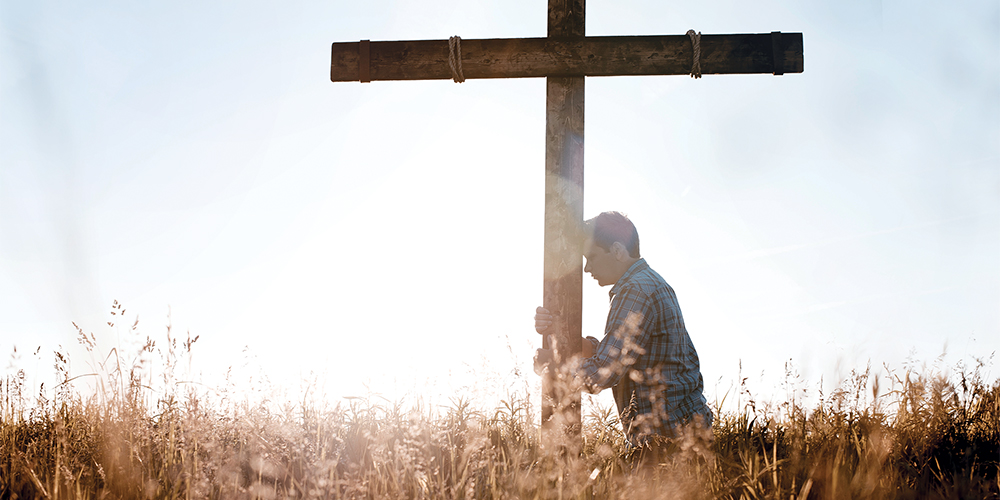 |
A true story of sin, Christian confrontation using God’s Word, repentance, and forgiveness.
I live in a private subdivision with several dozen properties. It’s a delightful little slice of Americana; a place where my children can make chalk art on the road with no fear of crime or traffic.
My neighbors Rachel* and Asahn* are a beautiful example of the American dream. She’s a blue-eyed blonde; he is from South Africa with skin like ebony and a laugh like rolling thunder. These two own a medical practice and are generally fantastic people. Two of their children are perpetually over at my house, either playing baseball in my yard or helping my children pilfer cookies from my kitchen. Like the other neighbors we have from Wisconsin, France, or Serbia, these kids are part of our neighborhood family.
Sin, however, pervades all creation, and my neighborhood is no exception.
One particular evening a year and a half ago, I was in the process of building a garage on the back of my property. I heard an angry exchange between my neighbor Steve* and the occupants of a Jeep I’d never seen before. While I couldn’t quite make out what was being said, I could tell it was hostile. It ended after about two minutes, and I went about my business.
The next evening, one of my neighbors asked me “if I’d heard.” When I inquired further, she told me the details of the exchange from the previous evening. Steve had been drinking again and was doing yard work near the road. He had made the following observations:
- There was a tricked-out Jeep he’d never seen before.
- It was driving slowly up and down the road, making several passes.
- The occupants of the Jeep were black.
His response (which is what I had partially heard the evening prior) was to walk into the street, block the road, and confront them, shouting obscenities and saying, “YOU DON’T BELONG HERE. GO BACK TO WHERE YOU CAME FROM!”
What he didn’t know was that it was our neighbor Asahn. He had just purchased a new vehicle and was teaching his 16-year-old daughter how to drive in our safe, traffic-free subdivision.
Asahn handled it with dignity. “Sir, I live here. We are neighbors. I live at the top of the hill. We met two summers ago before COVID.”
At this point, Steve realized his error and tried to play it off, but the damage was done.
This issue buzzed about my neighborhood for the next several days. Initially, I wasn’t sure what (if anything) to do. But after hearing from four other neighbors while jogging, walking my dog, and mowing my lawn, it became clear that something had to be done.
I prayed for wisdom and clarity on what the Lord would have me do, and in my Bible study I immediately came across the verse “Speaking the truth in love” (Ephesians 4:15). I asked the Lord for the opportunity to say something and immediately saw Steve standing in his yard.
For a moment, I considered the neighborhood conversations. They all included quotes such as,
- “I don’t want this hateful family living near me.”
- “Can we force him to move?”
- And even “It would sure be a shame if his house burned down.” (It’s remarkable how Satan can convince us to allow one sin to justify another.)
I realized these statements carried the same essential ingredient that Steve’s comments had: hatred. I thought of Matthew chapter 18, where Jesus teaches how to address sin in other people’s lives, and asked my group of neighbors, “Has anyone talked to Steve about this?” No one had.
As I approached Steve, I prayed again—a silent prayer for wisdom in the moment. I asked Steve what had happened, and he again tried to minimize it as a misunderstanding. I stood my ground, squared up to him, and directly quoted what he said. Then I continued, “I was on the roof, brother. I saw you talking, and you were angry. It’s also worth knowing that I didn’t hear what you said from Asahn or Rachel. I heard it from four of our neighbors; this is now what you’re known for.
“Steve, you mentioned to me that you’re a Christian. This is a good thing because it means you have a pathway to fix this.”
Steve broke down into tears. He put his face in his hands and said, “This is not who I am! I want to crawl into a hole and die.”
I placed my hand on his shoulder and said as firmly as I could, “No. That’s not an option for the Christian man. Christ paid for this, and the situation calls for repentance; hiding or ignoring it would be nothing but cowardice. In this moment, you are what you fear you are: a man who did something overtly racist. Whether or not that becomes who you are going forward depends on what you do next. You need to make this right. Rachel and Asahn are good people. Go to them, own your actions, and apologize; ask for forgiveness. Do this, and I believe they will forgive you. Or simply write a letter. I’ll help you write it if you’d like.”
Steve paused a moment and said, “No. This is something I need to do myself. Thank you for telling me the truth.”
“You leave that guilt at the foot of the cross where it belongs. Learn from your mistake and move on.”
Later that evening, I watched Steve walk up the hill to Rachel and Asahn’s house in the rain with an envelope in his hand. Minutes later he returned. The next night, I saw the same thing. And the night after. I later learned that he struck out three times (they were not home) before finally connecting. Rachel came by our house and said that he appeared to be genuinely, sorrowfully repentant. He apologized and received the forgiveness he sought. She was also profusely thankful that someone had confronted him.
This is the power of Christ as granted to us by his gospel message. It’s not that we can avoid sin but that our sin (even the sin of wounding others with racism) is freely forgiven when the framework for handling conflict in Matthew chapter 18 is followed.
I saw Steve a week or so later. He walked into my yard and shook my hand. “I still feel guilty,” he said.
In this moment I was able to shake my head while smiling and say, “Nope. You leave that guilt at the foot of the cross where it belongs. Learn from your mistake and move on.”
It’s worth noting that one last rumor about Steve was spread: Something that seldom happens had happened—he had apologized and been forgiven.
*Names have been changed.
Author: Joshua Nelson
Volume 111, Number 06
Issue: June 2024






